This was a fascinating and moving story. I wasn’t aware of the history of the Leningrad seige and the obvious impact on the people of that region. It was also wonderful to see that the family were finally reunited and were able to travel back to the places of their childhood. Thank you Netalija and John for sharing your story! I do hope you will have a chance to return again.
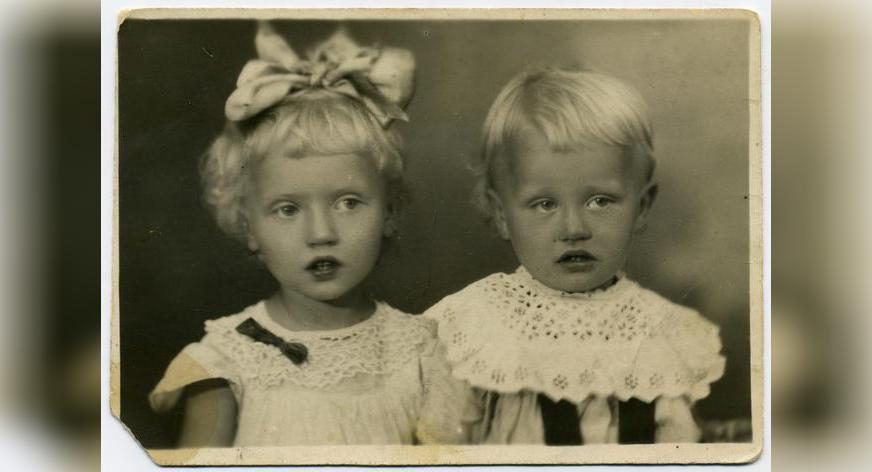

John Phillips, a 78 year old pensioner from Sydney, has created a wonderful documentary “To Russia, With Love” about his wife’s search for her family.
For 67 years his wife Netalija and her cousin Marianna thought each other was dead, after being separated in the battle of Leningrad in 1941. The documentary records the first emotional meeting of Netalija and Marianna, and their families, after 67 years. It is dedicated to Dr Janis Licis who saved Netalija, her mother and brother from the German slave labour camps.

Netalija and her brother Ernest
John decided to place his family history onto MyHeritage.com, after considering and rejecting other sites, and has been extremely pleased with the results. In addition to historical records, MyHeritage features a wealth of information about Russia, such as Russian surnames, Russian Jewish surnames and Russian genealogy. and Russian Birth records on the MyHeritage Wiki. He entered his wife’s original name, Netalija Karlovna Mittenberg rather than her adopted name of Licis. Netalija’s family were the only Mittenbergs in Leningrad in the 1930s.
Marianna’s grandson, who had heard about Netalija and her family, was also compiling his family history on MyHeritage.com. He typed in “Mittenberg” and amazingly, found Netalija’s and John’s family.
In March 2009, John received an email from Dmitry Jegorov Sitic from Riga, capital of Latvia. Dmitry was terribly excited as his grandmother, Marianna Aleksandrova Egorova was Netalija’s cousin. Marianna’s mother, Vera Nikolaevna Chumakova and Netalija’s mother Lubova were sisters. His grandmother still had photos of the family.
Lubova and Vera had 9 or more other siblings, however, it appears that Netalija and Marianna are the only surviving members of that branch of the family. One of MyHeritage’s genealogy experts is trying to assist Netalija find more information about her father (see right), who was taken by the KGB, along with his brother, in 1937 and was never seen again.
Netalija, where did you and your family eventually settle after fleeing Riga?
After leaving Riga we ended up in a camp, Kemz (on the Danube). When we were sent to this place, my mother was put into a camp next to a quarry, where she had to break up rocks with other men and women. My brother Ernest and I were put into a detention camp for children. After some time Dr Licis found us and had us transferred to Altenburg, where he was a doctor. When the war ended we went to a Latvian camp at Regentsburg. From there, we came to Australia, on the Wooster Victory and American Liberty ships, landing in Sydney.
“We were sent to Bathurst to learn English and then on to Ballarat where we were given a job. Dr Licis, who was now my step-father, and my mother, also a doctor, were allowed to work as assistants at the Mental Hospital. I worked in the kitchen, before finally becoming a nurse at the Royal Melbourne Hospital. My brother Ernest became a doctor.”
The families were very excited to have found each other and corresponded regularly. Then in September 2009, John and Netalija made the trip to meet her long lost cousin Marianna. During this amazing reunion there was so much for the cousins to talk about – and lots of tears. Nearly all of their family perished during the war.
“The whole family has disintegrated to me and Marianna,” said Netalija.
“From a very large plan there is nothing left, only crumbs and old people who remember. It is important to see what and where we came from and why we are here.”
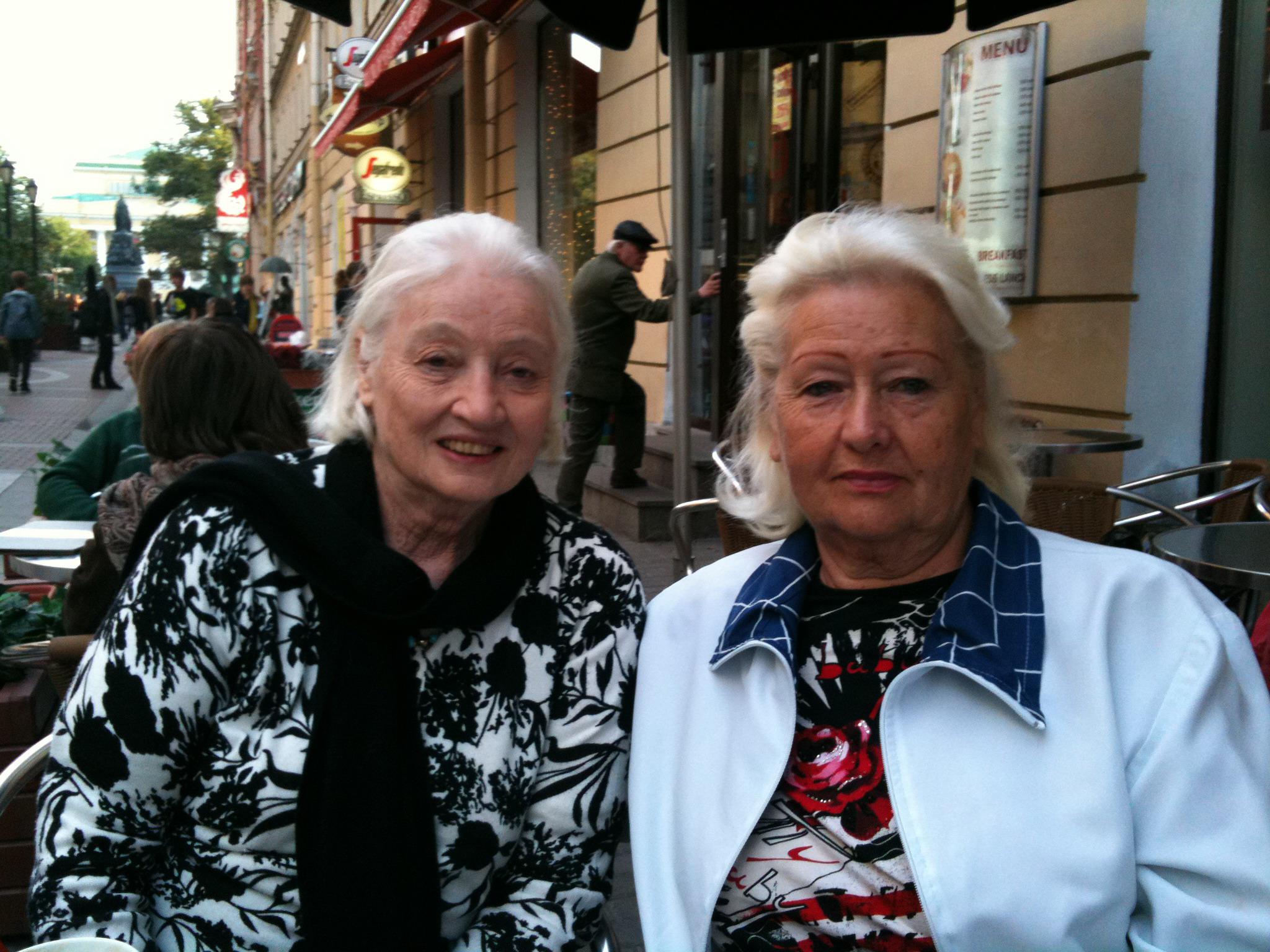 Netalija and Marianna – finally reunited
Netalija and Marianna – finally reunited
Netalija and John visited the Orthodox Cathedral in Riga, which was built in 1876 – 1884. There candles are lit for the 800,000 civilians who died during the 900 day siege at Leningrad. This was undoubtedly the most tragic period in the history of St Petersburg, a period full of suffering and heroism. The Blokada (the Siege) of Leningrad is an important part of the city’s heritage and a painful memory for the population’s older generations.
During the visit, the families went to Carikava (30 kms from Riga) and visited the Natural History Museum of Latvia. The museum is largely made up of houses from 12th and 13th century. The houses were built out of logs and were tucked away in the forest. People lived mostly away from the ocean and rivers because of the Viking influx and constant pillaging. The fishermen’s’ boats were kept on the lake, well hidden in the reeds.
From there they journeyed on to Marianna’s childhood home in Pargolovo, 20 kms from centre of St Petersburg. It had been 73 years since Netalija had last seen the house, but she still had wonderful memories of her time at the house as a child.
Spectra, a newspaper in Gatchina, also tried to assist Netalija by printing an article to see if any readers had additional information that would help the family with their research. It was a difficult process as the village Netalija had come from as a child, Siversky, did not appear to exist anymore.
Have you heard anymore from the Births and Marriages office in Riga or through the article in Spectra?
“No, unfortunately. We understand that Michael, another relative, had a daughter who now lives in Kiev. However, we do not know her married name and have been unable to find her.”
John has ensured that all the wonderful new information and history they have uncovered will be passed down to future generations. All his DVD material and photos have been recorded onto CD’s. All family members have also been given a folder with all photos.
The family were interested to discover that Ernest’s (Netalija’s brother) family have now introduced the Mittenberg name into their family tree. They are now Dain Mittenberg Licis.
Netalija, will you have an opportunity to visit your family again or will they be able to visit Australia?
“John is still hoping to sell the documentary, which will enable us to continue our research and return to find the original house in Siverskay. However, unemployment is very high there (50%), and it would be very difficult financially for any of the family to visit us. We are still hopeful one of the younger ones might be able to make the trip one day.”
Netalija was unable to find her family “Dacha” (second home). All land records were destroyed, for convenience – or greed.
But, the Dacha could still be there ……. Perhaps on a full moon, at the famous Moonstone, her “Brigadoon” will appear.
For now, it lives in her memory –
A home; A grandfather; A grandmother ….. And lots of love.
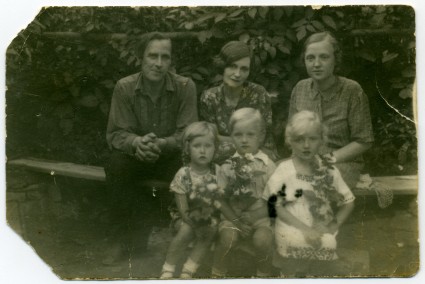
Marianna’s father Aleksandr, her mother Vera, Netalija’s mother Lubova, Marianna, Ernest and Netalija

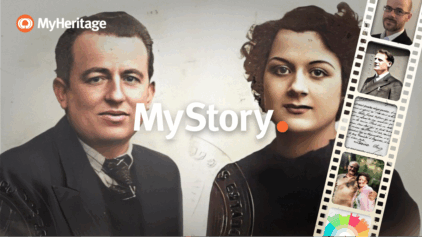
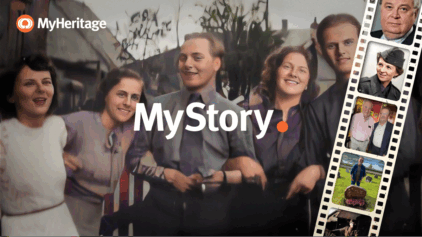

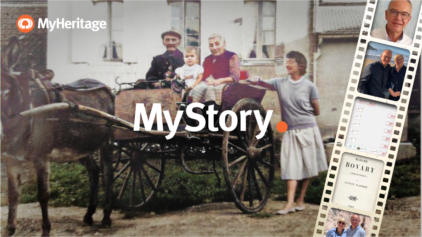




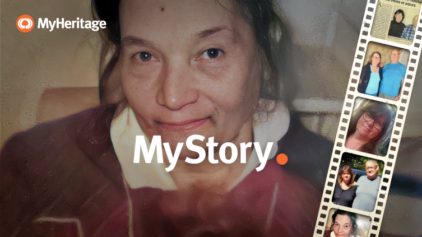
claire humphrys
September 9, 2010
Claire Humphrys, This is a wonderful tribute John, well done, your cousin, C